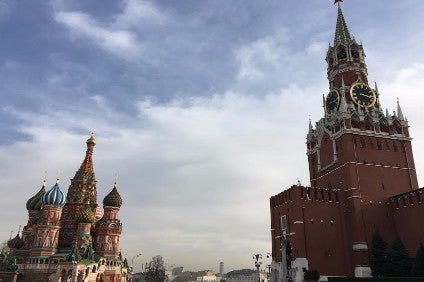
Volkswagen’s Russia Group says the country itself does not have an issue when it comes to producing fake goods, but is urging the government to continue to tackle illicit manufacturing being brought in from abroad.
Illicit trafficking in Russia has reached signifiant levels, with The Kremlin setting up a State Commission to tackle the issue and in a bid to stem huge losses to the exchequer from unpaid tax on fake goods.
“Russia in itself is not producing counterfeit [goods], it is import which is the problem,” Volkswagen Group Rus general director, Marcus Osegowitsch told just-auto on the sidelines of this week’s International Economic Forum (SPIEF) in St Petersburg. “What we are asking the [Russian] government is they continue [with] customs controls [and that they] are more efficient, which is good for our processes.
“The topic is important because counterfeiting is a really big issue – I don’t want to have counterfeit brakes in my car or [counterfeit] sheet metal – it has to have crash performance. It is the same question everywhere in the world. In the car industry it is not only a matter of losing revenue and money for the government – it is also a safety issue.
“Reducing the impact of customs checks is brilliant, but for counterfeit [goods] that is not good. We are co-operating very well with customs on this. I must say cooperation in Russia has significantly improved – we are working very closely with customs. We need more inland measures as well to give customs a chance to find out if the product is official or fake.”
Russia has developed a goods labelling and tracking system in a bid to root out counterfeiting, which can affect investor confidence in the country. Compulsory labelling has been introduced for fur goods for example, while other industrial sectors are undergoing pilot schemes to address illicit trafficking.
How well do you really know your competitors?
Access the most comprehensive Company Profiles on the market, powered by GlobalData. Save hours of research. Gain competitive edge.

Thank you!
Your download email will arrive shortly
Not ready to buy yet? Download a free sample
We are confident about the unique quality of our Company Profiles. However, we want you to make the most beneficial decision for your business, so we offer a free sample that you can download by submitting the below form
By GlobalData“What we have introduced in Russia is labelling where the customer can peel it off and check the number corresponds to the product,” added Osegowitsch.
“We don’t need to control the whole chain from our side because it is very easy to track what we bring into the country and what we sell. These are quite cheap systems.”
Addressing the International Effort Against Illicit Trafficking panel at SPIEF 18 in the northern Russian city, Association of Branded Goods Manufacturers in Russia executive director, Alexy Popovichiev noted despite the country’s economic crisis of the last few years, the “leap forward in fake goods” had not happened although he conceded more could be done.
“Today the application of laws are a bit behind,” he said. “We are very grateful to the Federal Customs Union which protects the external borders of our country. “The volume of fake goods is worth RUB2.3tn.”







